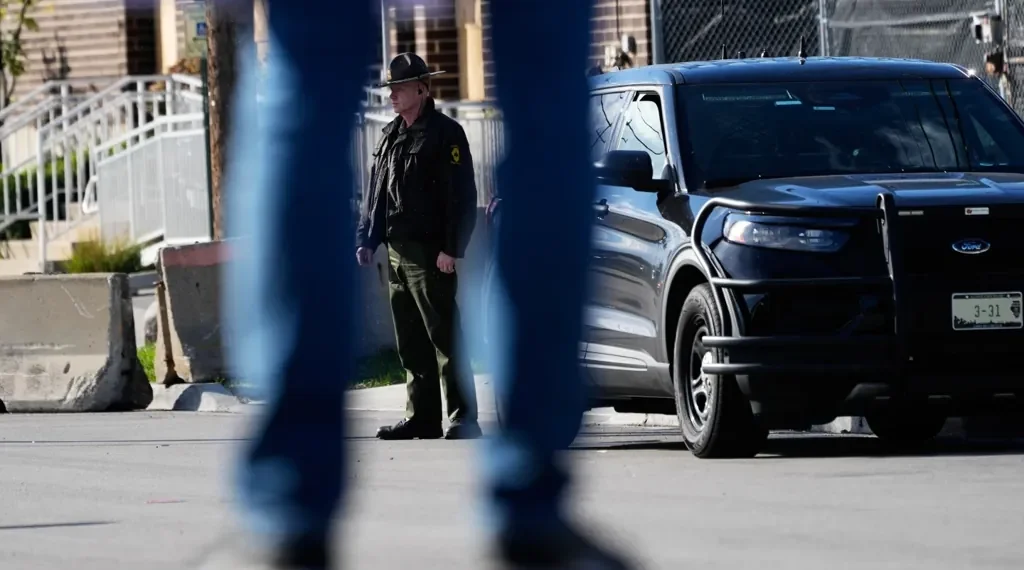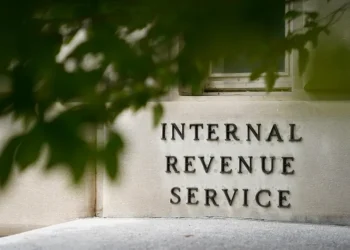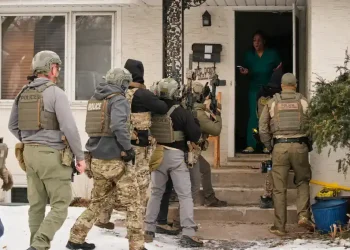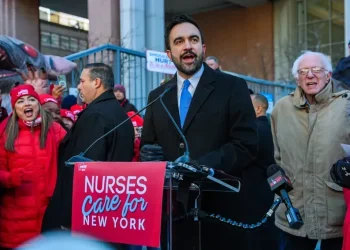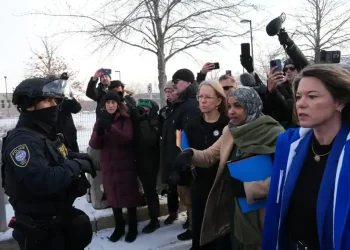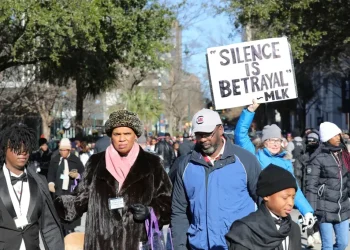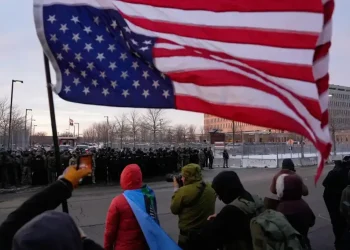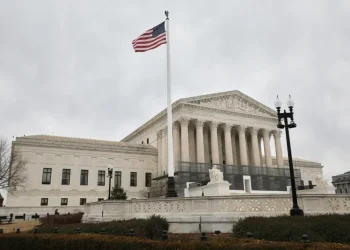President Donald Trump’s efforts to deploy National Guard troops in Democratic-led cities have triggered a series of overlapping legal challenges across the United States. From Chicago and Portland to Los Angeles and Memphis, federal and state courts are weighing whether the president has the authority to send troops over the objections of local and state officials.
Supreme Court May Decide Fate of Chicago Deployment
A federal judge in Chicago has temporarily blocked the deployment of National Guard troops to the region for two weeks, pending further review. The same judge will hold a hearing Wednesday to determine whether to extend the order, though the outcome may be overtaken by an anticipated U.S. Supreme Court ruling on the issue.
Attorneys for the Trump administration told the court they would consider extending the block for 30 days but continue to seek emergency intervention from the Supreme Court. Solicitor General D. John Sauer argued in a filing that “every day this improper TRO remains in effect imposes grievous and irreparable harm on the Executive.”
Chicago and Illinois attorneys have urged the Supreme Court to uphold the existing block, calling Trump’s move to deploy troops to Chicago a “dramatic step” that infringes on state and local authority.
Portland’s National Guard Status Remains Unresolved
In Oregon, legal wrangling has left the potential deployment of 200 National Guard troops to Portland in limbo. Earlier this month, U.S. District Judge Karin Immergut—appointed by Trump—issued two restraining orders: one blocking the president from calling up Oregon troops, and another preventing him from sending troops from other states into Oregon.
The Justice Department appealed the first order, and on Monday, a 2–1 panel from the 9th U.S. Circuit Court of Appeals sided with the administration. However, Immergut’s second restraining order remains in effect, temporarily barring any immediate deployment of troops to Oregon.
The matter remains under judicial review, with further hearings expected to clarify the extent of presidential authority in the case.
California Court Examines Newsom’s Challenge
A separate legal battle is unfolding in California, where Governor Gavin Newsom has challenged the deployment of National Guard troops to Los Angeles. The 9th U.S. Circuit Court of Appeals is set to hear arguments Wednesday in the dispute, which centers on whether Trump violated federal law by sending troops during protests against his immigration policies earlier this year.
In June, U.S. District Judge Charles Breyer ruled in favor of Newsom, finding that Trump’s deployment breached the Posse Comitatus Act—a statute dating back to 1878 that restricts the use of federal troops in domestic law enforcement. However, an emergency ruling by an appeals panel later allowed the troops to remain under federal control pending appeal.
The same appellate judges are now weighing whether to vacate Breyer’s decision or uphold his findings that Trump’s actions exceeded presidential authority.
Groups Seek to Halt Guard Deployment in Washington, D.C.
Legal challenges have also surfaced outside the West Coast. In Charleston, West Virginia, a state court hearing is scheduled for Friday on a lawsuit seeking to block the deployment of the state’s National Guard to Washington, D.C.
More than 300 Guard members from West Virginia have been stationed in the nation’s capital since late August, participating in Trump’s broader initiative to increase security in response to ongoing demonstrations. The plaintiffs argue the deployment lacks proper legal justification and exceeds the governor’s constitutional authority.
Democrats Challenge Tennessee Deployment to Memphis
In Tennessee, Democratic lawmakers filed a lawsuit last Friday to stop the deployment of National Guard troops to Memphis, claiming Republican Governor Bill Lee acted unlawfully by authorizing the operation without legislative approval.
Under Tennessee’s state constitution, the Guard may be called up only in cases of “rebellion or invasion” and typically requires legislative consent. The lawsuit argues that neither condition has been met.
Since October 10, troops in Memphis have patrolled parts of downtown, including the area surrounding the city’s iconic Pyramid. Dressed in military fatigues labeled “military police,” Guard members have been seen carrying sidearms but reportedly do not have arrest powers.
National Context and Legal Implications
The series of court battles reflects an ongoing clash between federal and state authority over domestic military deployments—a constitutional issue that has rarely been tested in modern times. Legal analysts note that while presidents have limited authority to deploy troops under the Insurrection Act or federal emergency powers, states traditionally control their own National Guard forces unless formally federalized.
If the Supreme Court intervenes, its ruling could set a major precedent defining executive power during times of civil unrest and determining how far a president can go in deploying the military without state consent.
This article was rewritten by JournosNews.com based on verified reporting from trusted sources. The content has been independently reviewed, fact-checked, and edited for accuracy, neutrality, tone, and global readability in accordance with Google News and AdSense standards.
All opinions, quotes, or statements from contributors, experts, or sourced organizations do not necessarily reflect the views of JournosNews.com. JournosNews.com maintains full editorial independence from any external funders, sponsors, or organizations.
Stay informed with JournosNews.com — your trusted source for verified global reporting and in-depth analysis. Follow us on Google News, BlueSky, and X for real-time updates.
